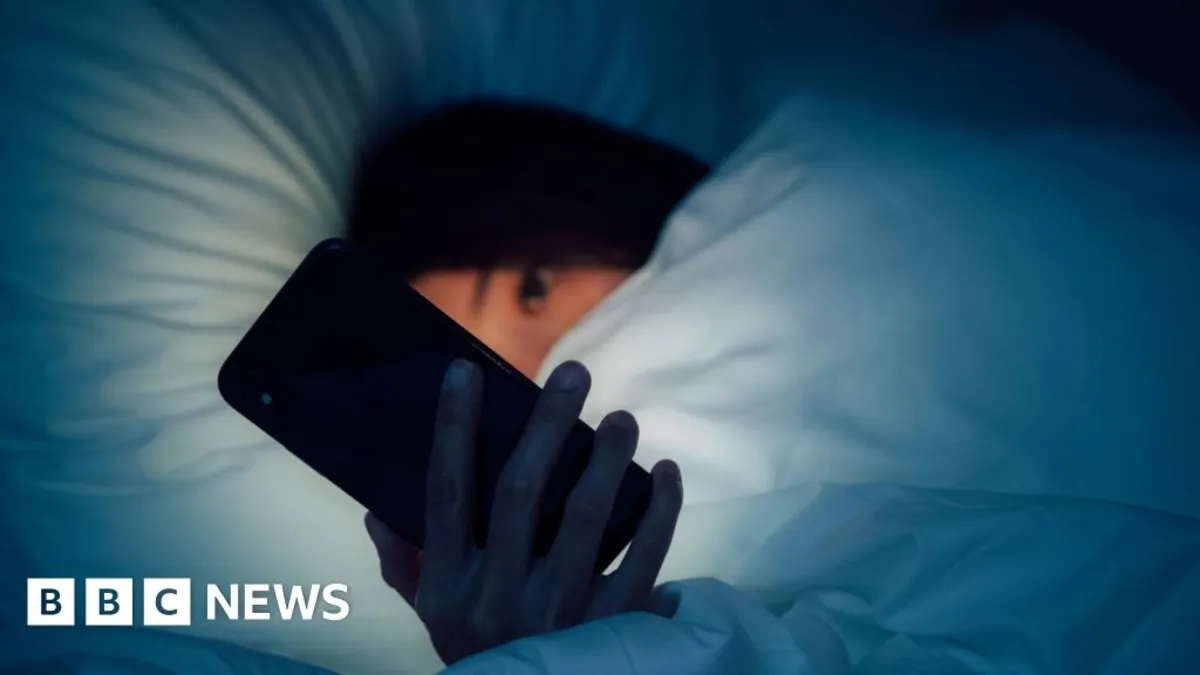
A recent study has revealed that individuals who spend more time looking at a screen while in bed are more likely to experience insomnia and sleep loss. This research, which surveyed over 45,000 students in Norway, indicates a concerning trend: for every additional hour of screen time in bed, there is a 63% increase in the risk of developing insomnia, alongside an average reduction of 24 minutes in sleep duration.
The researchers, utilizing nationally representative survey data from students aged 18 to 28 collected in 2022, aimed to explore the connection between screen time and sleep patterns. They specifically sought to differentiate the impact of various screen activities, including social media, on sleep quality. According to Dr. Gunnhild Johnsen Hjetland, the lead author from the Norwegian Institute of Public Health, the overall amount of screen time had a more significant impact on sleep disruption than the specific type of activity. "We found no significant differences between social media and other screen activities, suggesting that screen use itself is the key factor in sleep disruption," he stated.
The 2022 Norway health and wellbeing survey allowed participants to indicate their use of digital media after going to bed, with options such as watching films, checking social media, browsing the internet, and gaming. Among those reporting screen use in bed, a staggering 69% also engaged in social media activities. Participants were asked about their screen time habits and the frequency of sleep-related issues, such as difficulty falling asleep or waking up too early. Those experiencing such issues at least three nights a week for a minimum of three months were classified as having insomnia.
While the study established a link between bedtime screen use and reported instances of sleep disruption or insomnia, researchers caution against hastily concluding that screen use is the direct cause of these issues. Dr. Hjetland emphasized, "This study cannot determine causality — for example, whether screen use causes insomnia or if students with insomnia use screens more." Additionally, the reliance on self-reported survey data may introduce biases, making the findings less universally applicable.
Joshua Piper, a sleep clinician at ResMed UK, highlighted the growing evidence that the use of electronic devices adversely affects sleep quality. He explained, “It steals both opportunity and the quality of your sleep, which is why some may struggle for onset, while others struggle to stay asleep.” Despite attempts to mitigate disruption through screen brightness adjustments or night mode features, Piper noted that the act of scrolling and engaging with a device is likely the primary cause of sleep disturbances.
Insomnia is estimated to affect as many as one in three individuals in the UK, with late-night phone use and doomscrolling frequently cited as contributing factors. Although the exact effects of social media use in bed on physical and mental health remain debated, experts universally recommend reducing digital device usage before bedtime. Establishing a consistent sleep routine by going to bed and waking up at the same time daily is also advised to enhance sleep quality.
Mental health charities such as Mind and Rethink suggest engaging in relaxing activities before sleep, such as deep breathing exercises, reading, or taking a warm bath, rather than forcing oneself to sleep. They also recommend avoiding caffeine, alcohol, and heavy meals before bed, incorporating gentle exercise, and enhancing bedroom comfort whenever possible.
Sleep therapist Dr. Kat Lederle stressed the importance of exposure to natural daylight, especially in the morning, for regulating our internal body clock. She advocates for finding ways to unwind from the day's stresses through enjoyable, non-stimulating activities as a crucial step toward better sleep.
The authors of the study emphasize the need for further investigation into the relationship between bedtime screen use and sleep patterns. They call for longer-term studies and inquiries regarding the disruptions caused by device notifications overnight. Such research endeavors could provide clearer insights into the effects of screen use before bed and help inform targeted recommendations for students and other demographics.